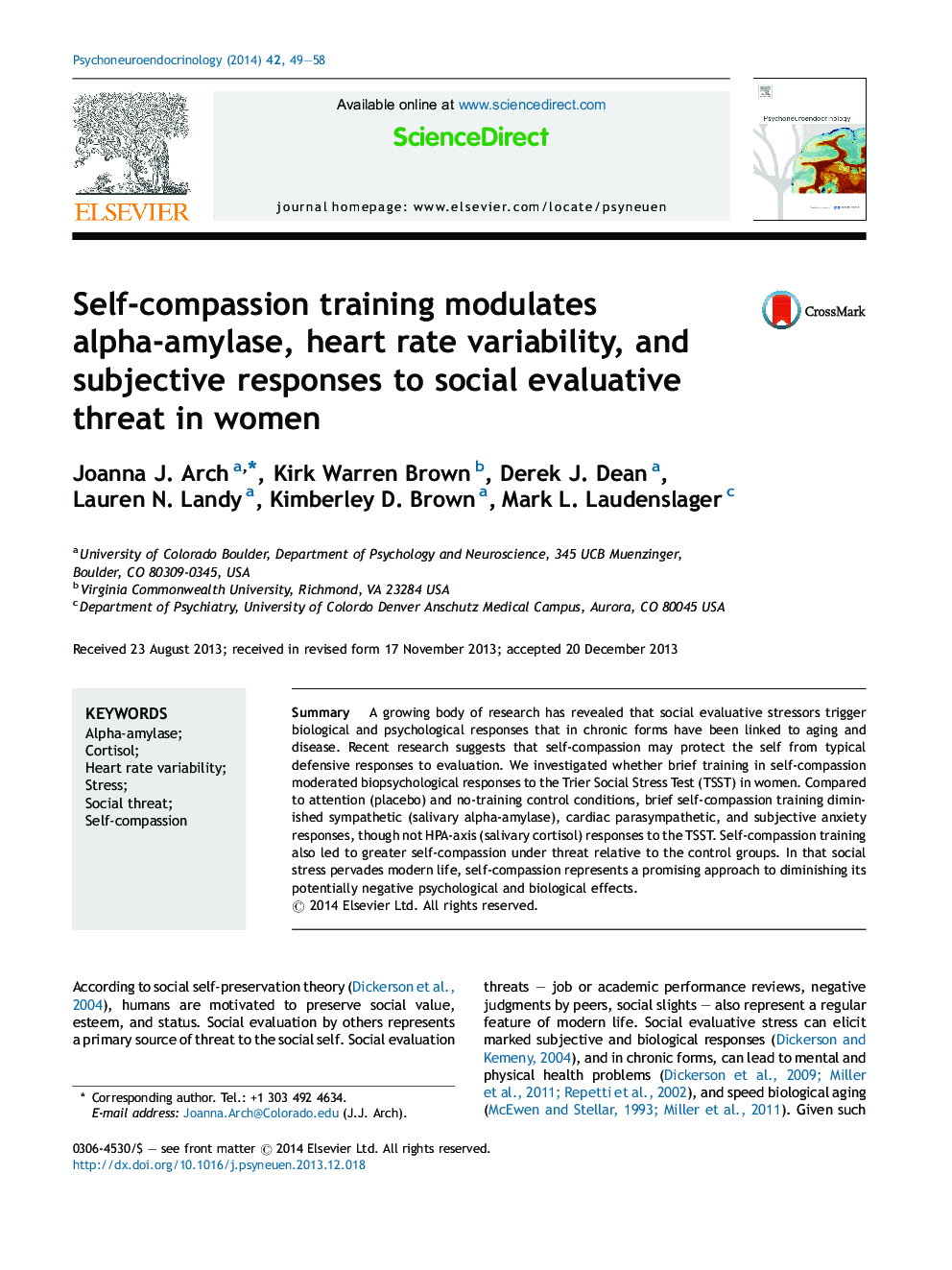| Article ID | Journal | Published Year | Pages | File Type |
|---|---|---|---|---|
| 336395 | Psychoneuroendocrinology | 2014 | 10 Pages |
SummaryA growing body of research has revealed that social evaluative stressors trigger biological and psychological responses that in chronic forms have been linked to aging and disease. Recent research suggests that self-compassion may protect the self from typical defensive responses to evaluation. We investigated whether brief training in self-compassion moderated biopsychological responses to the Trier Social Stress Test (TSST) in women. Compared to attention (placebo) and no-training control conditions, brief self-compassion training diminished sympathetic (salivary alpha-amylase), cardiac parasympathetic, and subjective anxiety responses, though not HPA-axis (salivary cortisol) responses to the TSST. Self-compassion training also led to greater self-compassion under threat relative to the control groups. In that social stress pervades modern life, self-compassion represents a promising approach to diminishing its potentially negative psychological and biological effects.
